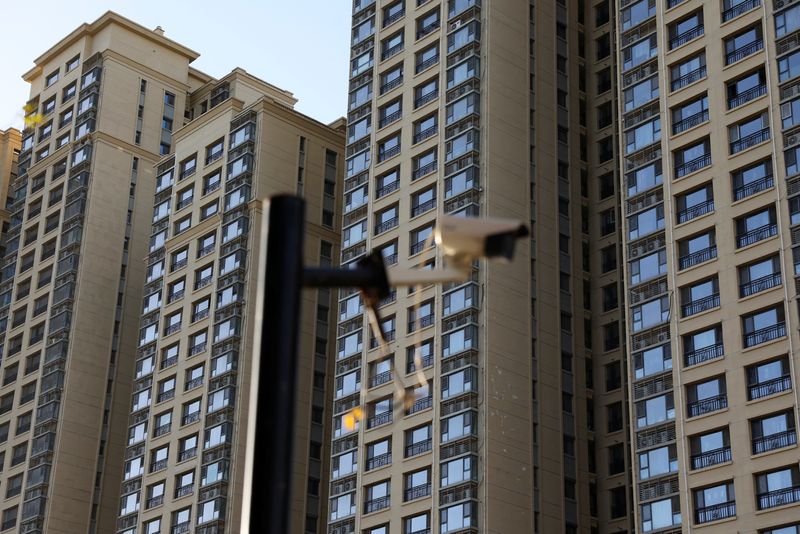By Clare Jim and Scott Murdoch
HONG KONG (Reuters) - A Hong Kong court on Monday ordered China Evergrande (HK:3333), the world's most indebted developer, to be liquidated.
The move could send shockwaves through already fragile Chinese capital and property markets. Such a process could be complicated, with potential political considerations, given the many authorities involved.
WHAT HAPPENS AFTER THE COURT ORDERS EVERGRANDE LIQUIDATED?
Once a liquidation order is issued, a provisional liquidatorand then an official liquidator will be appointed to takecontrol and prepare to sell the developer's assets to repay itsdebts.
The liquidators could propose a new debt restructuring planto offshore creditors holding $23 billion of debt in Evergrandeif they determine the company had enough assets or if a whiteknight investor appeared. They would also investigate thecompany's affairs and could refer any suspected misconduct bydirectors to Hong Kong prosecutors.
Evergrande could appeal a liquidation order, but theliquidation process would proceed pending appeal.
Shares in Evergrande and its listed subsidiaries were suspended from trading after the liquidation order. Listing rules require a company to demonstrate a business structure with sufficient operations and asset values.
HOW MUCH DEBT MIGHT CREDITORS RECOVER AND WHAT ARE THE MAINCHALLENGES?
Evergrande cited a Deloitte analysis during a Hong Kongcourt hearing in July that estimated a recovery rate of 3.4% ifthe developer were liquidated.
However, after Evergrande said in September its flagshipunit and its chairman Hui Ka Yan were being investigated by theauthorities for unspecified crimes, creditors nowexpect a recovery rate of less than 3%.
Evergrande's dollar bonds were bid at around one cent on thedollar on Friday.
Most of Evergrande's assets have been sold or seized bycreditors, leaving its two units listed in Hong Kong -Evergrande Property Services Group and Evergrande NewEnergy Vehicle Group. Their combined marketcapitalisation had dropped to $973 million as of Friday.
A liquidator could sell Evergrande's holdings in the twounits although it might be difficult to find buyers.
After a liquidation, the liquidator could take control ofEvergrande's subsidiaries across mainland China by replacingtheir legal representatives one by one, a process that couldtake months or years.
Insolvency experts said it would be a challenge for theliquidator to change the representatives as Guangzhou, whereEvergrande is based, is not one of the three Chinese cities thatmutually recognise liquidation orders with Hong Kong.
Even if a liquidator were to take possession of the unitsthat have onshore projects, many of these have already beentaken over by creditors, frozen by courts, have little valueleft or are even in negative equity because of falling propertyprices.
HOW SIGNIFICANT WOULD LIQUIDATION BE FOR CHINA'S PROPERTYMARKET?
While a winding-up of the developer with $240 billion ofassets would send shockwaves through already fragile capitalmarkets, experts said it would not offer a blueprint on howliquidation might unfold for other embattled developers.

Given the sheer size of Evergrande's projects and debt, theprocess would involve many authorities and politicalconsiderations.
Completing ongoing home construction projects will be a toppriority for the company, the sector and the government.